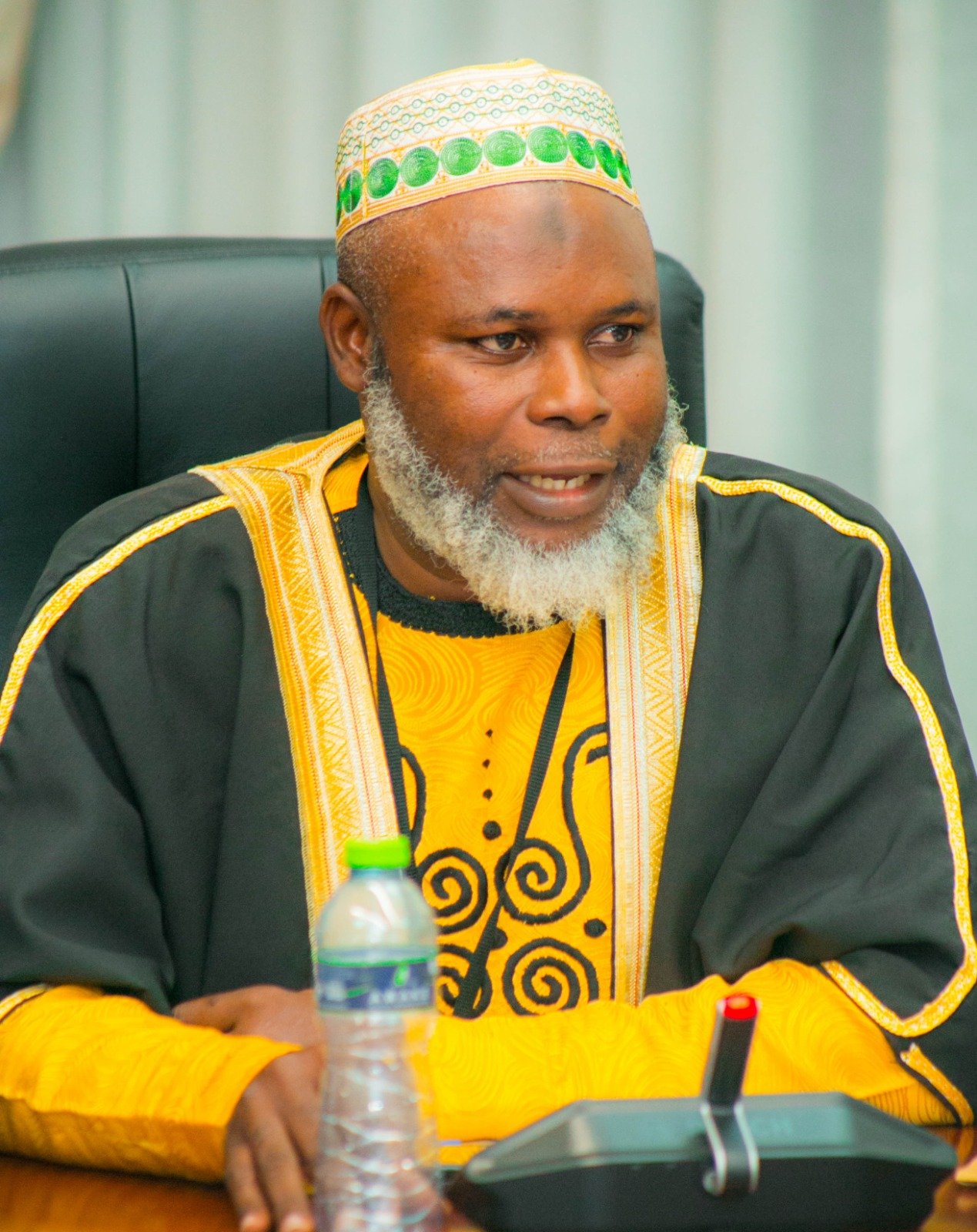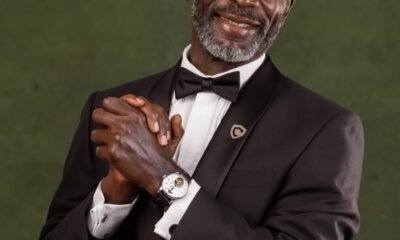Fruitful Living
Daniel – The value of leadership

Remember your leaders, who spoke the word of God to you. Consider the outcome of their way of life and imitate their faith. – Hebrews 13:7
INTRODUCTION
The Old Testament book of Daniel tells the story of four men who possessed leadership influence and spiritual convictions. Daniel and his three friends, Hananiah, Mishael, and Azariah, later renamed as Shadrach, Meshach, and Abednego are the four individuals upon whom this book is based. Their ability to participate in an environment that many would interpret as negative shows powerful skills of leadership influence with a foundation of deep convictions. There are times that many leaders have convictions and ideas that are completely lost because their influence is destroyed. Influence is best defined as the capacity to have an effect on the character, behaviour and development of people. All through the Book of Daniel, leadership influence and convictions are seen in the behaviour of all four of these men.
Leadership Lessons from The Book of Daniel
1. Daniel wasn’t afraid to be different (Daniel 1).
He didn’t just conform to the culture he found himself captive in. He was counter-cultural. Without hesitation, he requested that he and his friends be given a different diet than what was on the Babylonian menu. Daniel didn’t eat it just because it was put before him. He dared to be different (Daniel 1:8 & 11-14). Daniel approached the situation with a request. Daniel was comfortable in his own skin, and he stood out despite a scrupulous effort to indoctrinate him in the culture and customs of Babylon. Cultural awareness and engagement is important, but conformity erodes a leader’s influence.
Notice the approach that Daniel takes with the king’s servant. Daniel asked the chief official for permission not to defile himself in this way (Daniel 1:8) If a leader desires to influence those around him, how people are approached is essential. Daniel did not come at the servant of the king in an arrogant and prideful fashion. He asked for permission. Helpful leadership begins by showing respect to others.
2. Daniel Always Listened.
Daniel’s approach also recognised that change is not easy. The official servant who was responsible for Daniel and his three friends had some anxiety about the request. There will be times when a leader will need to call for change. Change is not always easy, but listening is essential. Winston Churchill once said, “Courage is what it takes to stand up and speak; courage is also what it takes to sit down and listen.” Daniel’s ability to hear what was being said to him showed a definite skill in leadership. Listening is a powerful skill for any leader.
3. Daniel had A Clear Strategy Plan
As he presented his suggestion, he had also a strategy. Daniel said, “Please test your servants for ten days: Give us nothing but vegetables to eat and water to drink.” This suggestion was not an overwhelming request. Daniel was not asking for a month or a year. His request was simple and was not overwhelming to the servant of the king.
His request for water and vegetables was simple. For any leader to influence and be able to maintain their spiritual convictions, a clear strategy plan must be defined. After Daniel was allowed to follow his beliefs, and he was able to use his leadership skills.
4. Daniel knew where to go for answers (Daniel 2:12-18). After the King had a dream that none of the wise men of the kingdom could interpret, a decree was made for all of them to be put to death, including Daniel. But Daniel and his inner circle of trusted companions took the matter to prayer “to seek mercy from the God of heaven concerning this mystery.” God answered them with the necessary wisdom and discernment. Daniel was a man of constant communion with God. Prayer was his lifeline; literally… it saved his life on numerous occasions and positioned him for greater influence as a leader.
5. Daniel celebrated wins and praised God for answers when they came (Daniel 2:19-23). Daniel knew where his wisdom came from and he gave glory and honour where it was due. (James 1:5-8)
6. Daniel had his friends’ back, and, therefore, could be trusted (Daniel 2:49). After Daniel interpreted the King’s dream, he paid homage to Daniel, offering him high honours and many great gifts. But Daniel didn’t forget his friends Shadrach, Meshach, and Abednego. He requested to the king that they be appointed over the affairs of the province of Babylon. Daniel understood that at every level of success in life, someone helped you get there. He didn’t forget his friends; he remembered those who had helped him. He had their backs!
7. Daniel was willing to lose it all rather than compromise (Daniel 3). When the king ordered every subject of the kingdom to bow and worship an idol erected out of Nebuchadnezzar’s narcissistic arrogance, Daniel and his three friends counted the cost. They believed their God could deliver them from the fiery furnace, but were still willing to lose everything; their status, affluence, positions, power, prestige, and even their lives, before they would compromise by worshipping a false god, or self-serving agenda. Their character meant more to them than all the wealth of the kingdom, and they were willing to lose everything before they compromised their character and the God-centred worship that shaped that character.
8. Daniel wasn’t afraid to have the hard conversation (Daniel 4:22-27). When Nebuchadnezzar had become enveloped in pride and arrogance, Daniel wasn’t intimidated to have the hard conversation about where this conceit was leading the king. He was a straight shooter. He told the king God would drive him into the wilderness to eat grass like a wild beast “until you know that the Most High rules the kingdom of men and gives it to whom he will.” Daniel didn’t pamper the king with flattery; he spoke boldly about the consequences of pride and self-absorption.
9. Daniel could rightly interpret problems and solve them (Daniel 5:16). Leaders solve problems, cowards place blame. Leaders find solutions, bosses point fingers. Leaders find a way where others make excuses. Leaders seek to understand before being understood. They rightly interpret problems and bring about solutions to fix them. The Bible says that Daniel had a gift for solving problems, not blaming others for them.
10. Daniel didn’t allow political or cultural influences to erode his values (Daniel 6). He was a man of prayer and a man of deep faith. This distinguished him above the other political figures of his time, breeding jealousy amongst his colleagues. They set a trap, by passing legislation that would incriminate Daniel for praying to his God, but he paid no attention to it (Daniel 6:10). He never changed his values. He was a man of prayer and unshakable faith regardless of what laws were put on the books or what was culturally acceptable. As a result, this Daniel was honoured. His leadership and influence increased… and the laws were retracted and re-shaped around his values! He didn’t bend.
11. Daniel was a man of integrity; this bred confidence in God (Daniel 6:22). Daniel attributed his great escape from the lion’s den to his blameless character before God. Daniel wasn’t perfect by any means. But he understood the correlation of integrity and the providence of God. Psalm 25:21 – “May integrity and uprightness preserve me, for I wait for you.” Because Daniel was a man of integrity, he had great confidence in God’s deliverance. 1 John 3:21 – “Beloved, if our heart does not condemn us, we have confidence before God.” John W. Gardner wrote, “Men of integrity, by their very existence, rekindle the belief that as a people we can live above the level of moral squalor. We need that belief; a cynical community is a corrupt community.”
12. Daniel trusted God (Daniel 6:23). Perhaps there’s no greater description of this excellent leader. Because he trusted God, he was secure in his own identity. Because he trusted God, he knew the source of his wisdom. Because he trusted God, he was a man of great, uncompromising courage. Because he trusted God, he lived with integrity and prayed continually. Because he trusted God, he didn’t fret his opponents. Daniel never cowered… because he trusted God.
End Note:
In thinking about the events that Daniel experienced, there is some definite teaching regarding leadership influence and personal convictions. Billy Graham put it best when he said, “When wealth is lost, nothing is lost; when health is lost, something is lost; when character is lost, all is lost.”
The Book of Daniel tells us that Daniel never lost his helpful leadership influence. This was the result of his spiritual convictions. Therefore, he never lost his character. What about you?
Stay blessed!
For further inquiries please contact us on Tel Nos. 0302-772013 or 0268130615
Email: saltnlightministries@gmail.com
Website: saltandlightministriesgh.org
#######
Fruitful Living
Institution of Marriage in Islam (Pt.3)

Regarding sexual intimacy, it is also prohibited for a wife to demand money or gifts before allowing her husband to engage in sexual relations. Islam views this as a form of exploitation and sin. A marital relationship must be based on mutual love, respect, and affection rather than material gain.
Prohibition of sexual intercourse during menstruation
Islam has clear guidelines regarding sexual relations during certain times, particularly when a woman is menstruating. The Qur’an prohibits sexual intercourse during menstruation, stating:
“And they ask you about menstruation. Say: ‘It is harm, so keep away from women during menstruation. And do not approach them until they are pure. And when they have purified themselves, then come to them from where Allah has ordained for you. Indeed, Allah loves those who are constantly repentant and loves those who purify themselves’” (Qur’an 2:222).
This verse emphasises the importance of refraining from sexual activity during menstruation due to physical and spiritual reasons. However, all other forms of affection and companionship are allowed, and husbands should continue to care for their wives during this time with love and respect.
Islamic law encourages cleanliness and personal hygiene, especially in matters related to physical intimacy. After the menstruation period ends, it is recommended that the wife perform ghusl (ritual purification) before resuming sexual relations with her husband.
Rights of Children on Parents
Islam emphasises the rights of children on their parents, as marriage is the foundation of family life. Parents are obligated to provide their children with proper care, education, and moral guidance. The Qur’an states: “O you who have believed, protect yourselves and your families from a Fire whose fuel is people and stones…” (Qur’an 66:6).
This highlights the parents’ responsibility to raise their children with a strong sense of morality and faith. Children have the right to a good name, religious upbringing, and education, and they must be treated with fairness and love.
In Ghana’s law, there is Children’s Right Act, Act 560 (1989) which states among other things,
• Section 4, Right to Name, Nationality and secure a Birth Certificate for the child
• Section 6(3) (a&b), protection from neglect, provide good guidance, care etc
• Section 8(1&2), Right to education and wellbeing (medical care, diet, clothing, shelter).
How Do Married Couples Resolve Their Differences in Islam?
Islam provides clear guidelines for resolving marital conflicts in a just and compassionate manner.
The Qur’an instructs that in the event of marital discord, both parties should seek reconciliation:
“If you fear dissension between the two, send an arbitrator from his people and an arbitrator from her people. If they both desire reconciliation, Allah will cause it between them” (Qur’an 4:35).
The goal is always to preserve the marriage and restore harmony. If reconciliation is not possible, Islam permits divorce as a last resort, but it is considered the most disliked permissible act in the eyes of Allah (SWT).
Rewards of Marriage in Islam
Marriage in Islam is not only a social institution but also an act of worship that brings great rewards. The Prophet Muhammad (PBUH) said: “When a man marries, he has fulfilled half of his religion, so let him fear Allah regarding the remaining half” (Bayhaqi, Shu’ab al-Iman).
Married couples are rewarded for fulfilling their marital responsibilities, showing kindness to each other, and raising righteous children who contribute positively to society.
Scholarly Thoughts About Marriage in Islam
Islamic scholars, such as Imam Al-Ghazali, have discussed marriage as a means of controlling desires and fulfilling one’s spiritual obligations. Modern scholars like Sheikh Yusuf Qaradawi also stress the importance of mutual respect and understanding in marriage, ensuring that both partners can grow spiritually and emotionally within the marriage.
Conclusion
In conclusion, marriage in Islam is a divinely ordained relationship based on mutual love, respect, and responsibility. By following the guidance of the Qur’an and Sunnah, and observing the legal frameworks in place, such as Ghana’s Mohammedan Ordinance, we can establish strong and harmonious marriages that contribute to the moral and spiritual development of society. May Allah (SWT) guide us to fulfill our marital responsibilities with sincerity and love.
The Writer is Kpone Katamanso Municipal Chief Imam, Democracy and Governance Law Student, UCC, Member of Ghana National Association of Certified Counsellors Certified by Ghana Psychology Council
References:
1.Qur’an, Surah Ar-Rum (30:21)
2.Qur’an, Surah An-Nisa (4:34, 4:4, 4:19, 4:35)
3.Qur’an, Surah Al-Baqarah (2:187, 2:221, 2:222, 2:223)
4.Qur’an, Surah At-Tahrim (66:6)
5.Ibn Majah, Hadith 1845, 1905
6.Tirmidhi, Hadith 1162, 1084
7.Bukhari, Hadith 5090
8.Children’s Right Act, Act 560 (1989)
9.Bayhaqi, Shu’ab al-Iman
10.Al-Ghazali, Ihya Ulum al-Din
11.Qaradawi, The Lawful and Prohibited in Islam
Fruitful Living
Adansi North DCE marks birthday on Farmers’ Day

It was a momentous day for the Adansi North District Chief Executive, Eric Kwaku Kusi, last Friday November 8, as the 40th National Farmers Day district level celebration held here at Adansi Adokwai coincidentally fell on his birthday.
On a low-key, Mr Kusi momentarily took to the floor, to exhibit his dancing skills responding to cheers of “Happy Birthday to you” from the audience, to which he also responded with a gesture of thanks and praises to God, as he stepped out to address the gathering.
He was joined on the dancing floor by the assembly members singing praises to God for the life of their indefatigable DCE.
In his address, Mr Kusi commended farmers in the Adansi North and the country as a whole “who tirelessly cultivate the land to feed all of us in our communities.”
He said the government realising the important role agriculture played in the economy and the challenges facing farmers due to the effects of climate change was rolling out initiatives and policies to support climate-resilient agriculture, including agriculture insurance programme for farmers.
In all 16 farmers were awarded various prizes for their contribution to food sufficiency in the country.
Francis Appiah, 41, who hails from Adokwai was adjudged the District Best Farmer for 2024, and took home a tricycle and other assorted items. The first runner-up prize went to Sakyi Kwabena also from Adokwai and the second runner-up went to Kwame Gyamera from Dompoase.
From Alhaji Salifu Abdul-Rahaman, Adansi Adokwai







